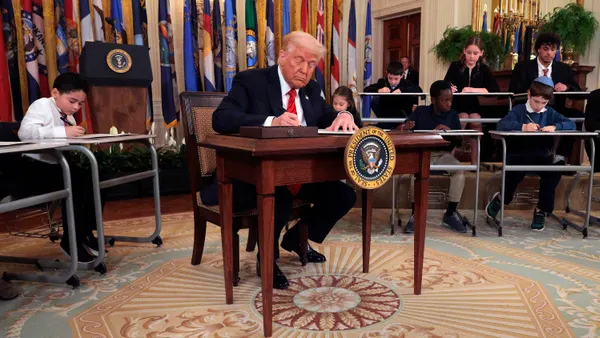Dive Brief:
- Sexuality educator, trauma-informed specialist and inclusion consultant Laura McGuire writes for Edutopia that lessons and conversations with students on sexuality, relationships and the body should begin perhaps even before the teen years.
- Schools in particular should be discussing consent with students and helping them understand that the concept is far more nuanced than catchphrases such as “no means no” and “yes means yes,” with administrators considering the possibility of bringing in sex education experts to help discuss these issues, as well as spreading them throughout the curriculum rather than limiting them to health classes.
- Other focuses for those in charge of curriculum to address include sexual agency and subjectivity, as well as how to encourage students to develop healthy relationships while also looking beyond stereotypes to widen the conversation.
Dive Insight:
Few states — even those that require sex education in public schools — look at the topic of consent and what makes up a healthy relationship, according to a 2018 report from the Center for American Progress. Just 10, along with the District of Columbia, actually use the words “consent,” “sexual assault” and “healthy relationships.”
These lessons do not have to be exclusive to sex ed and health classes. As Education Dive reported earlier this year, topics including sexual assault can be woven into gym classes through self-defense lessons, which Linda Carlson, a physical education teacher with Oak Park and River Forest High School near Chicago, does every year with sophomores.
Students are inundated with information from sources ranging from social media to web sites to their friends. Having an opportunity to gather facts from trusted sources — such as teachers and school administrators — is crucial, particularly around issues including sexual education.











